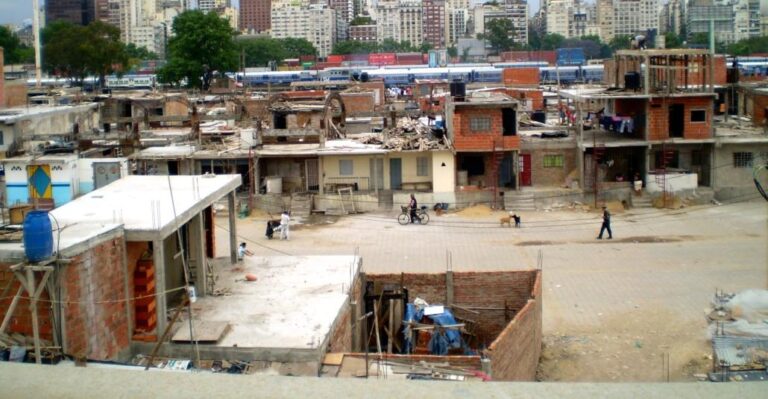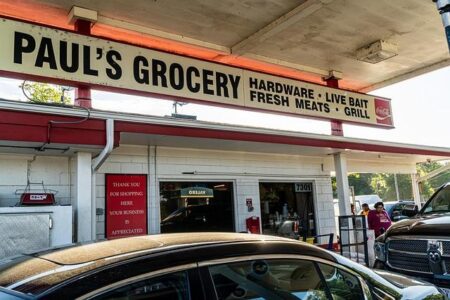In a striking political shift, Argentina’s sprawling slums, long considered bastions of Peronist support, played a decisive role in handing a surprising victory to far-right candidate Javier Milei. Once a cornerstone of the ruling party’s voter base, these marginalized communities abandoned the populist movement during the recent elections, signaling deep disillusionment with traditional political promises. The Wall Street Journal examines how economic hardship, dissatisfaction with government corruption, and Milei’s anti-establishment rhetoric converged to reshape the nation’s political landscape.
Argentina’s Slums Reject Decades of Peronist Rule in Milei’s Rise
The longstanding grip of Peronist politics on Argentina’s urban poor has shown signs of unraveling, particularly within the sprawling shantytowns that fringe Buenos Aires. Residents, long reliant on the social safety nets promised by Peronist administrations, have increasingly expressed frustration over stagnant living conditions, rampant inflation, and persistent insecurity. This erosion of loyalty has laid the groundwork for Javier Milei’s unexpected surge, as his message of economic overhaul and anti-establishment rhetoric resonated strongly among demographics traditionally aligned with Peronism.
Key factors driving this political shift include:
- Disillusionment with decades of unfulfilled social programs
- Escalating cost of living outpacing wage growth
- The appeal of Milei’s libertarian stance promising deregulation and inflation control
- Fear of persistent corruption within traditional political structures
| Demographic | Previous Voting Pattern | Recent Shift |
|---|---|---|
| Slum youth (18-30) | 75% Peronist | 55% Milei |
| Women, heads of household | 68% Peronist | 48% Milei |
| Informal economy workers | 72% Peronist | 50% Milei |
Economic Desperation and Social Breakdown Fuel Shift in Voter Sentiment
The profound economic hardships endured by Argentina’s most vulnerable communities have fractured long-standing political loyalties, igniting a seismic shift in voter behavior. Chronic inflation, soaring unemployment, and eroding public services have left slum residents feeling abandoned by decades of Peronist rule. Many now attribute their worsening conditions to policies they once supported, fueling a turn toward alternative leadership that promises radical change and immediate results. This disillusionment is starkly visible in the streets where once-reliable Peronist strongholds have crumbled, replaced by the palpable enthusiasm for Javier Milei’s outsider rhetoric and critique of the political establishment.
Social breakdown has compounded economic distress, driving communities to reassess their political identities. Amid rising crime rates and inadequate safety nets, traditional ties to populist parties have weakened, creating fertile ground for Milei’s libertarian message. Key factors influencing this transformation include:
- Escalating inflation: Devastating purchasing power, especially among low-income households
- Increasing unemployment: Limited formal job opportunities pushing voters toward anti-establishment promises
- Rise in crime and insecurity: Growing public demand for law and order reforms
- Generational discontent: Younger voters rejecting traditional Peronist figures
| Economic Indicator | 2019 | 2023 |
|---|---|---|
| Inflation Rate | 54% | 110% |
| Unemployment | 10.4% | 18.7% |
| Crime Rate (violent crimes) | Moderate | High |
| Slum Population Support for Peronism | 65% | 28% |
Policy Recommendations to Address Urban Poverty and Political Disillusionment
To combat the twin crises of urban poverty and political disillusionment that have reshaped Argentina’s electoral landscape, policymakers must prioritize inclusive economic growth paired with robust social support systems. Tackling entrenched poverty in informal settlements requires a multifaceted approach:
- Investment in affordable housing: Upgrading slum infrastructure can reduce health hazards and improve residents’ quality of life.
- Job creation and vocational training: Targeted programs aligned with emerging industries can empower the urban poor with sustainable income opportunities.
- Enhanced access to education and healthcare: Breaking cycles of marginalization starts with guaranteed basic services.
Beyond economic reforms, restoring faith in political institutions is critical. The pervasive sense of abandonment among slum dwellers demands transparent governance and active community engagement. Strategies include:
- Localized participatory forums: Giving citizens a direct voice in municipal decisions fosters accountability and trust.
- Anti-corruption measures: Demonstrable commitment to integrity can counter voter cynicism.
- Policy delivery that matches promises: Tangible improvements prevent further alienation.
| Policy Focus | Immediate Benefit | Long-Term Outcome |
|---|---|---|
| Affordable Housing Initiatives | Healthier living conditions | Urban stability and reduced inequality |
| Key Takeaways
As Argentina’s political landscape shifts, the surprising realignment of support from traditional Peronist strongholds to Javier Milei underscores a deep undercurrent of discontent within the country’s marginalized communities. This electoral outcome not only signals a repudiation of decades-long political loyalties but also highlights the urgent demand for new governance and solutions amid persistent social and economic challenges. How Milei’s administration will address the needs of Argentina’s most vulnerable populations remains a critical question as the nation embarks on this uncertain chapter. |




